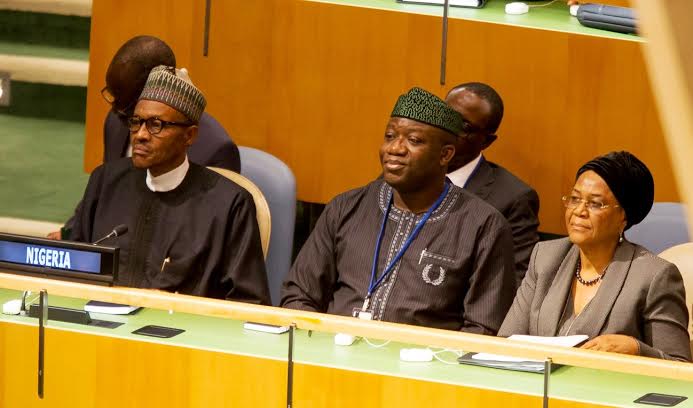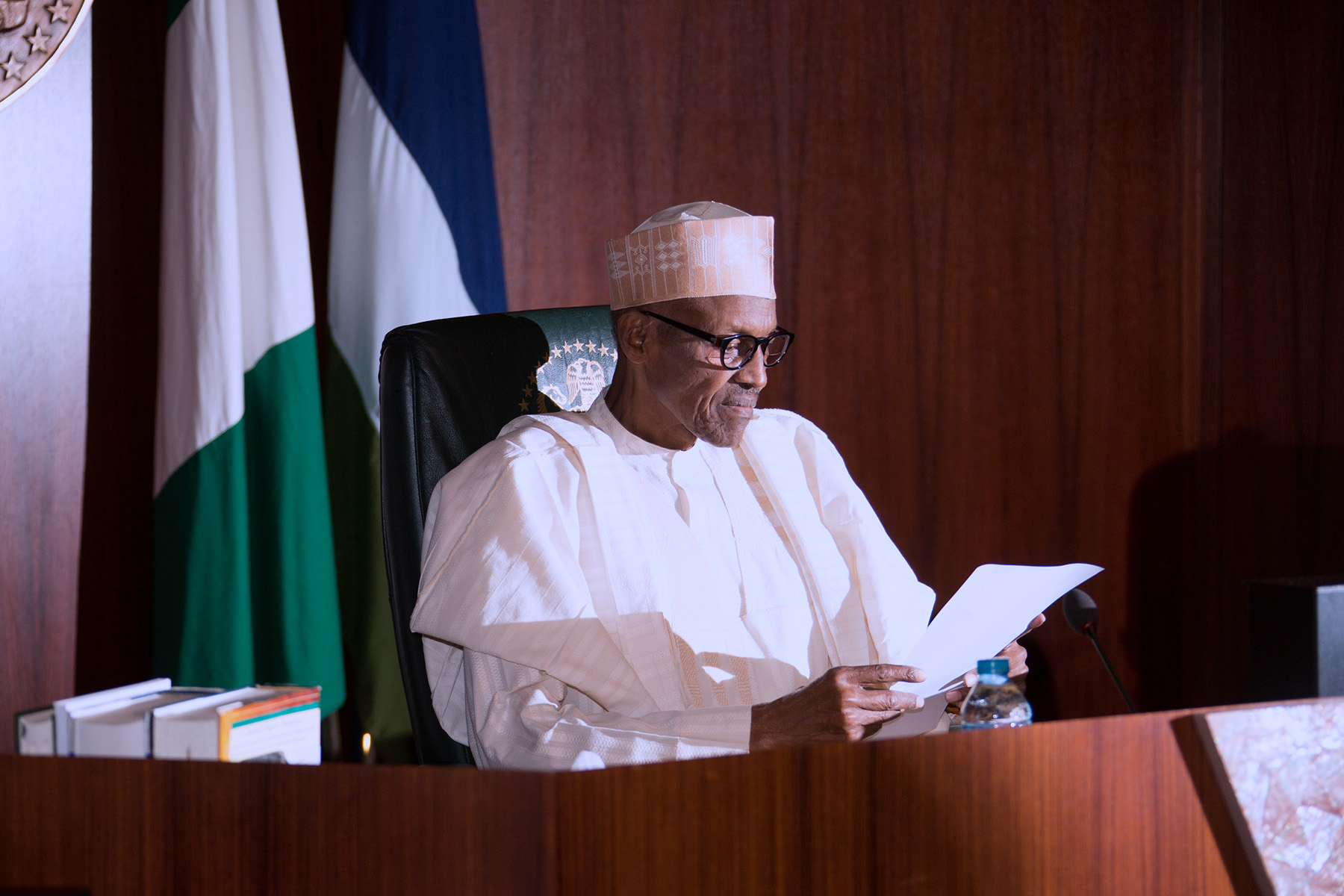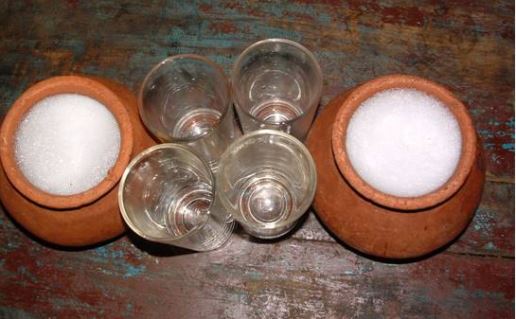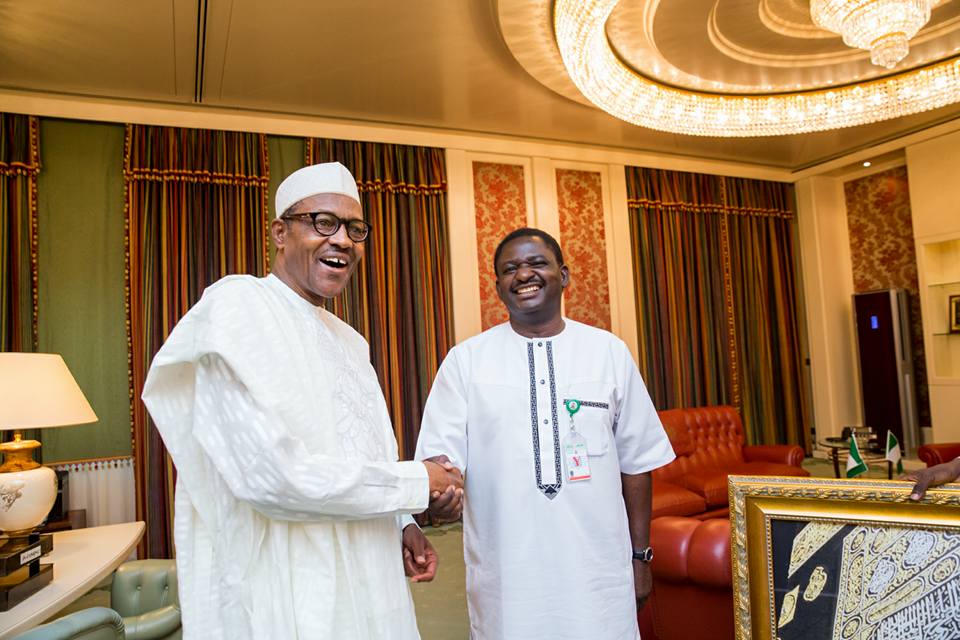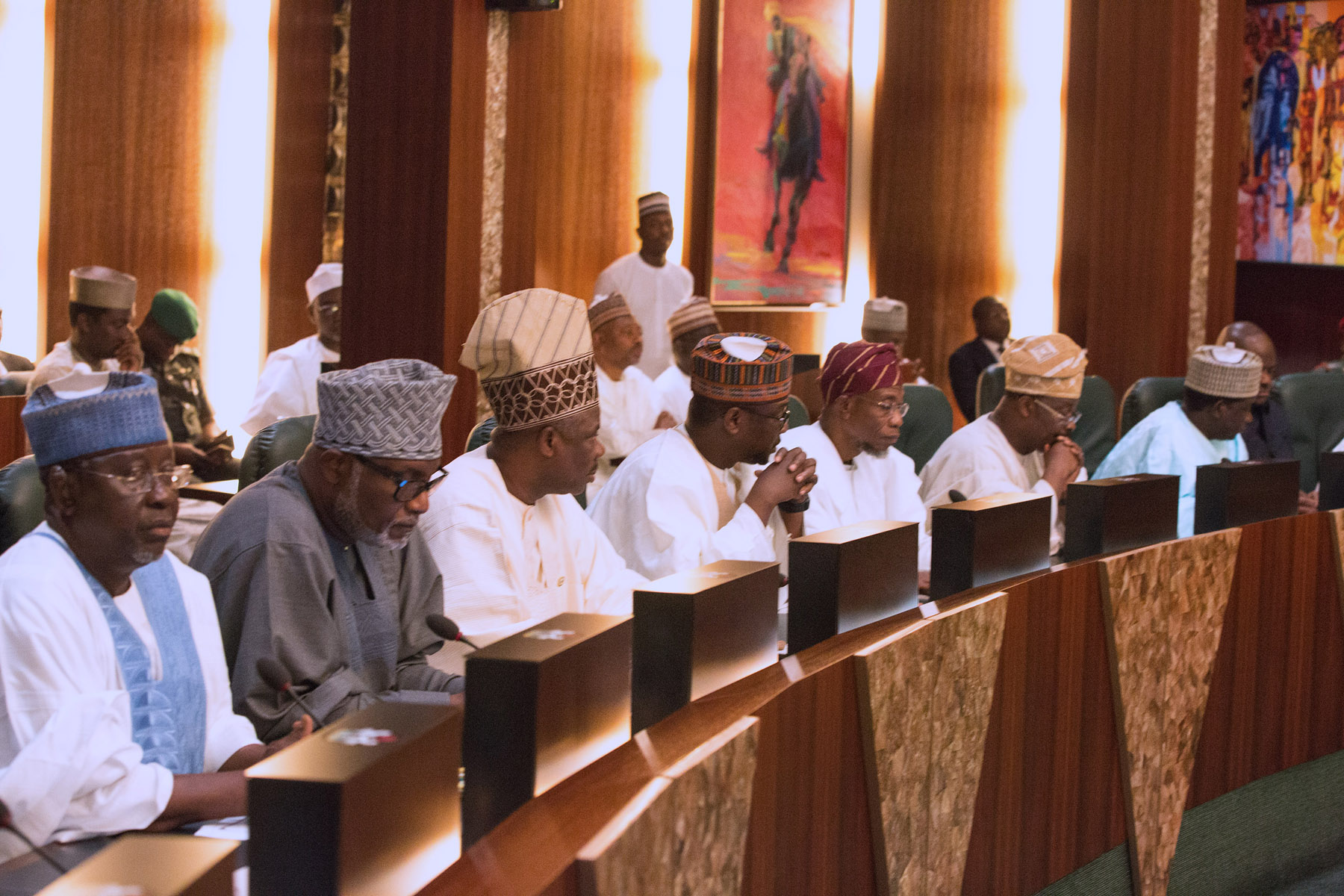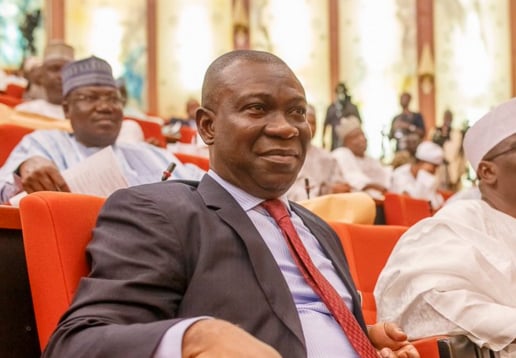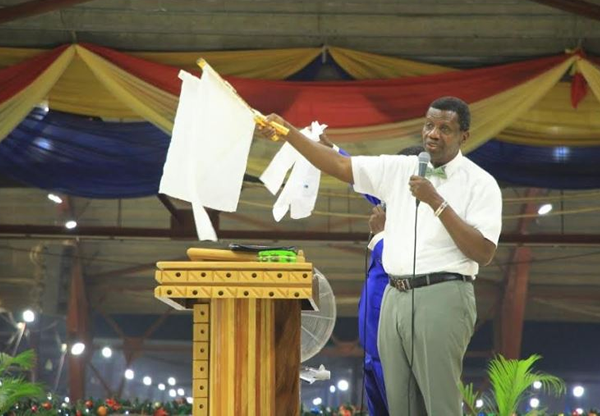Bad news. Every state in Nigeria is blessed with solid minerals. Every single state. North, south, east, west. And in commercial quantity too. Zamfara, Kebbi, Niger and Osun are very rich in gold. Ebonyi, Plateau and Nasarawa are blessed with tin and tantalum. The bitumen in Ondo state is of the highest quality anywhere in the world. Anambra has iron ore and limestone in abundance. Bayelsa has gypsum and limestone. Akwa Ibom has limestone and clay. Imo has lead/zinc and salt. Bauchi has gold and columbite. Gombe has gemstone and gypsum. Katsina has kaolin, marble and salt. Lagos has bitumen, clay and glass-sand. I can go on and on, but boredom would set in.
Bad news. The gold deposit in Osun state alone is worth about $5 billion in today’s price, according to Professor Olugbenga Akindeji Okunlola, a prominent geologist. That is about N1.5 trillion. If it is mined and Osun takes 13% derivation, that is some N200 billion revenue over the lifespan of gold mining. In contrast, for the whole of 2016, Osun state collected N62 billion as federation allocation and internally generated N8.88 billion. If Ajaokuta steel in Kogi state can come on stream full blast, the potential income for Nigeria is in billions of dollars. And, of course, Kogi will take 13% of that. Enugu’s iron ore deposits are worth billions as well.
Bad news. From the solid minerals we have in Nigeria, we can create value chains spewing out billions and billions of dollars every year. Millions will be employed directly and indirectly. Governments at all levels will receive billions of naira in tax revenue — VAT, personal income tax, corporate tax, stamp duties, royalties and several other handles. Factories upon factories are waiting to be created to produce thousands of products from these minerals. From talc alone, which is present in Niger, Osun, Kogi, Ogun and Kaduna states, we can produce plastic, paint, coatings, rubber, electric cable, pharmaceuticals, cosmetics and ceramics. Now I’m boring you.
If we are so blessed, why do I call it “bad news”? It is because all said and done, what benefits have we been deriving from these solid minerals? When you mention natural resources in Nigeria, we seem to be more interested in oil and gas. Since the oil boom of 1973, our lives — and nationhood — have revolved around it. Every discussion about Nigeria starts and ends with oil. Oil price is up, we are happy. We eat and drink and rise up to play. Oil price is down, we are sad. We are depressed. Naira takes a tumble. Industries shut down. We promise to “diversify” the economy. We threaten to develop agriculture and solid minerals. Oil price rises again and normal service resumes.
Advertisement
If we are so blessed with solid minerals, why are we not developing them? If solid minerals will generate so much and provide jobs for millions, why are we not grabbing the opportunities? The answer, of course, is that Nigeria has been making so much money from oil that agriculture and solid minerals have inevitably suffered. We are rich in solid minerals — why are we not exploring them? I had a one-hour interview with Dr. Kayode Fayemi, minister of mines and steel development, for TheCable a few days ago. That was my question to him. His reply: “When I came to this ministry, one of the first questions I asked was the same question you asked.”
And then he took me down memory lane, as the cliché goes. Solid minerals used to contribute about four to five percent to our GDP up till the 60s because we prioritised our focus on the solid minerals, he said, disclosing that “if you look at the various works done by the geological survey of Nigeria then, you would see that the concentration paid off, and we became top ten producers of tin in the world, we became the major producer of coal to the world. In fact we had recorded trade in gold at the time, and then we discovered oil…” Every Nigerian can fill in the gap.
Since I was born, I have been hearing that every part of Nigeria is rich in solid minerals. While growing up in my village, I saw that we had marble. I remember that it was like farming for the artisans. Every day they woke up and went to work as if going to their farms. But they were just merely eking out a living, producing raw materials that had little value and were not even officially captured. Fayemi told me: “People are selling gold daily in Nigeria, but we don’t have a record of what is being sold, and these are the kind of issues that we think we need a proper framework to begin to address.” A sector that is 80% artisanal, as things stand, is grossly underdeveloped.
Advertisement
There is also a point to be made about investment. Why are private investors not really interested in mining these resources? As the minister pointed out, mining is a long-term sector. The mining cycle, he said, is about 10 years. “To do a successful exploration alone takes an average of five to six years of intensive capital expenditure, and when you now do that, to move from exploration to production takes you another three to five years before you start seeing the result,” he said. So the big investors would rather concentrate on areas where they can easily make their money. Oil exploration is also capital-intensive and takes time to yield result — but the reward is out of this world.
It is not all bad news, though. In fact, the good news of the inevitable decline of oil is driving attention to alternatives. So while the future of oil is getting threatened by the impending ban on vehicles using fossil fuels in countries such as UK, France, China and the US, it is a big opportunity for Nigeria to start producing batteries from these mineral resources that will power the electric cars. Let me be optimistic and declare that there will be electric-battery manufacturing companies in Nigeria before the ban comes into place. We have all the ingredients to become an electric battery-producing country. Nigeria’s overall economic potential is too good to be true.
For decades, though, we have only been talking and theorising on the solid minerals sector. No significant progress has been made. At least, the progress is not momentous enough for Nigerians to shout “eureka!” The simple act of testing the quality of these minerals is mainly out of our hands — it requires ISO standard if investors are to take us seriously or get excited at all. Fayemi said the government is working with the SGS, the mineral inspection company, to revive the laboratory in Kaduna and bring it up to ISO standard so that we can start testing the minerals here at home, “rather than taking them out to Australia, Canada and other places”.
In the end, we are starting from the beginning again, hoping that the momentum will be sustained so that we do not keep lamenting about what might have been. “We have put in place the framework. The roadmap was approved in 2016 by the federal executive council, and that roadmap looks at the governance of the sector, it looks at the strategy for enhancing the mining industry, it looks at policy, it looks at the regulatory framework, and it also looks at the fiscal regime like: what do we charge? What is the withholding tax in the mining sector? A whole load of detailed work had gone into that,” he said.
Advertisement
The federal government is focusing on seven key minerals — bitumen, gold, coal, limestone, barites, lead-zinc and tin. The Nigeria Minerals and Mining Commission will soon be set up to be a regulator, independent of the ministry, in order to boost investors’ confidence. The integrated automated and interactive solid minerals portal (IAISMP) has been launched for a centralised GIS web portal for the automation of mining activities across the country. Cooperatives have been set up for artisans so that they can formalise their activities, have access to credit and sell to a mineral-buying vehicle at the real market value. There is now a special mines police division.
It is gratifying that solid minerals have now been elevated and are getting the attention they deserve. Fayemi has tried to derisk mining by providing bankable data, providing concessionary loans through the solid minerals development fund and the Bank of Industry, and even planning to raise a mining bond. There is an aggressive marketing of Nigeria as a mining destination, with more emphasis on the need for processing rather than exporting raw export (they call it “beneficiation”), and encouraging linkage to industrialisation. Even legacy issues in Ajaokuta and Ikot Ekpene are being settled.
I would say I stepped out of Fayemi’s office with more good news than bad news. By December 2018, a bitumen processing plant will be inaugurated in Ondo state, according to the minister. Perception is changing, he said, as evident in Nigeria climbing up as a mining destination on the Fraser’s rating index. While it is true that investment in minerals does not produce results overnight, my relief is that there is now a clear goal and a clear focus on where we are going. It may take long, but let us get properly started in the first instance. We can then hope that despite the lengthy “mining cycle”, we are finally getting off on a solid ground. No pun intended.
AND FOUR OTHER THINGS…
JABBING HIJAB
Advertisement
Have you heard about Ms Amasa Firdaus, the law graduate who wasn’t called to the Nigerian bar for refusing to remove her hijab? I have heard people say she should have “obeyed the law” by removing her hijab, but my template answer to this kind of mentality is that if Rosa Parks had “obeyed the law”, segregation in public buses in the US would not have ended. Rev Martin Luther King would never have made that “I have a dream” speech. Meaningless rules should be disobeyed. How does the hijab hurt anybody? By the way, why do lawyers keep wearing that useless wig? We inherit certain things, continue to do them and never question the value. #DropTheWig! Defiance.
MPC LOGJAM
Advertisement
I once read a cartoon in which some children were on hunger strike. But they regularly took breaks to eat in order to have the strength to continue with the strike. The senate is currently on strike over confirmation of the president’s nominees — because of the refusal to replace Mr. Ibrahim Magu at EFCC despite failing screening twice. Can the senate please take a break from the strike and confirm the nominees for the depleted monetary policy committee (MPC) of the Central Bank of Nigeria (CBN)? Nobody needs to be told the consequences for financial markets if the MPC is unable to meet in the new year. We can’t afford to cut our nose to spite our face. Pragmatism.
JUDICIAL LORDS
Advertisement
Some years back, we were told that our laws should be amended so that the National Judicial Commission (NJC) would be the body appointing INEC chairmen. We were told about NJC’s integrity and all that. In Nigeria, we always think new laws and new constitutions are the solution to our problems. I opposed the proposal — there is no guarantee anywhere that NJC members are beyond reproach. I was insulted, as usual. But we are now getting to know the billionaire judges and how they pervert justice as a hobby. Meanwhile, Nigerian judges are now officially above the law. Only the NJC can allow them to be prosecuted for corruption, according to the court of appeal. Congrats!
YAHAYA JAMMING
Advertisement
Be careful what you pray for — you might get it. Kogi people have been praying for almost two years for their governor, Alhaji Yahaya Bello, to inaugurate a major project. Their prayer has been answered: he has “inaugurated” his palatial country home. It is a masterpiece to envy. As civil servants continue to complain about unpaid salaries (his aides usually say “it is only nine months, not 10”), he is enjoying his life to the fullest. We’ve been told he made his money before he became governor, but can’t he be a bit humble the way he flaunts it? People are dying over unpaid salaries and kidnappers have turned Kogi to the capital of kidnapping. Priorities.
Add a comment

